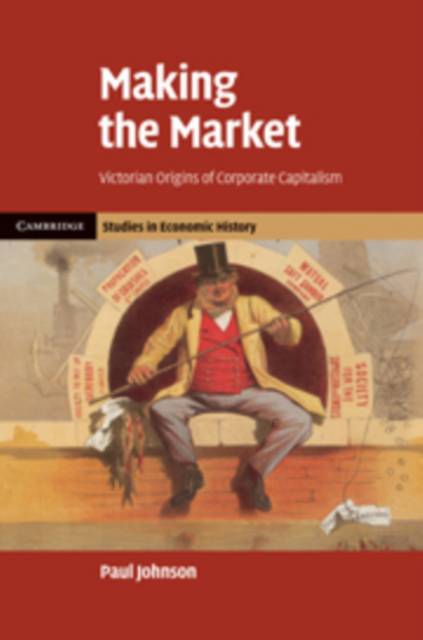
Bedankt voor het vertrouwen het afgelopen jaar! Om jou te bedanken bieden we GRATIS verzending (in België) aan op alles gedurende de hele maand januari.
- Afhalen na 1 uur in een winkel met voorraad
- In januari gratis thuislevering in België
- Ruim aanbod met 7 miljoen producten
Bedankt voor het vertrouwen het afgelopen jaar! Om jou te bedanken bieden we GRATIS verzending (in België) aan op alles gedurende de hele maand januari.
- Afhalen na 1 uur in een winkel met voorraad
- In januari gratis thuislevering in België
- Ruim aanbod met 7 miljoen producten
Zoeken
€ 172,95
+ 345 punten
Uitvoering
Omschrijving
Corporate capitalism was invented in nineteenth-century Britain; most of the market institutions that we take for granted today - limited companies, shares, stock markets, accountants, financial newspapers - were Victorian creations. So were the moral codes, the behavioural assumptions, the rules of thumb and the unspoken agreements that made this market structure work. This innovative study provides the first integrated analysis of the origin of these formative capitalist institutions, and reveals why they were conceived and how they were constructed. It explores the moral, economic and legal assumptions that supported this formal institutional structure, and which continue to shape the corporate economy of today. Tracing the institutional growth of the corporate economy in Victorian Britain and demonstrating that many of the perceived problems of modern capitalism - financial fraud, reckless speculation, excessive remuneration - have clear historical precedents, this is a major contribution to the economic history of modern Britain.
Specificaties
Betrokkenen
- Auteur(s):
- Uitgeverij:
Inhoud
- Aantal bladzijden:
- 266
- Taal:
- Engels
- Reeks:
Eigenschappen
- Productcode (EAN):
- 9780521857833
- Verschijningsdatum:
- 4/03/2010
- Uitvoering:
- Hardcover
- Formaat:
- Ongenaaid / garenloos gebonden
- Afmetingen:
- 152 mm x 229 mm
- Gewicht:
- 657 g

Alleen bij Standaard Boekhandel
+ 345 punten op je klantenkaart van Standaard Boekhandel
Beoordelingen
We publiceren alleen reviews die voldoen aan de voorwaarden voor reviews. Bekijk onze voorwaarden voor reviews.









